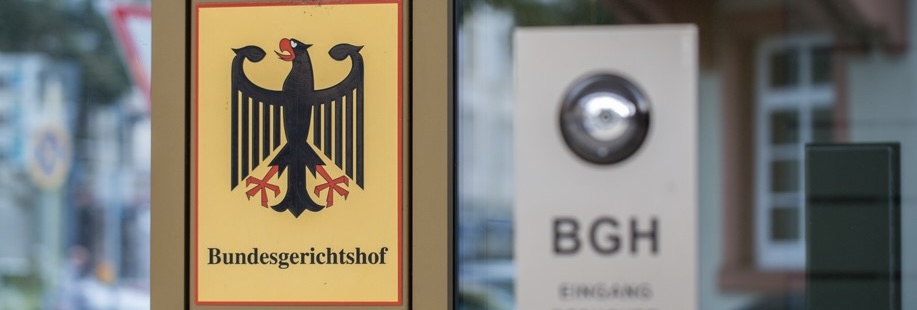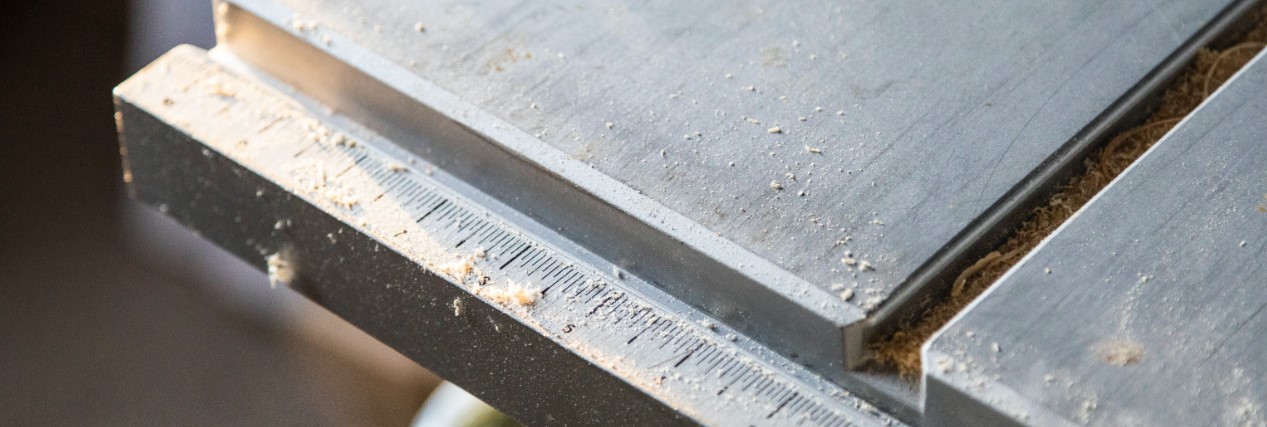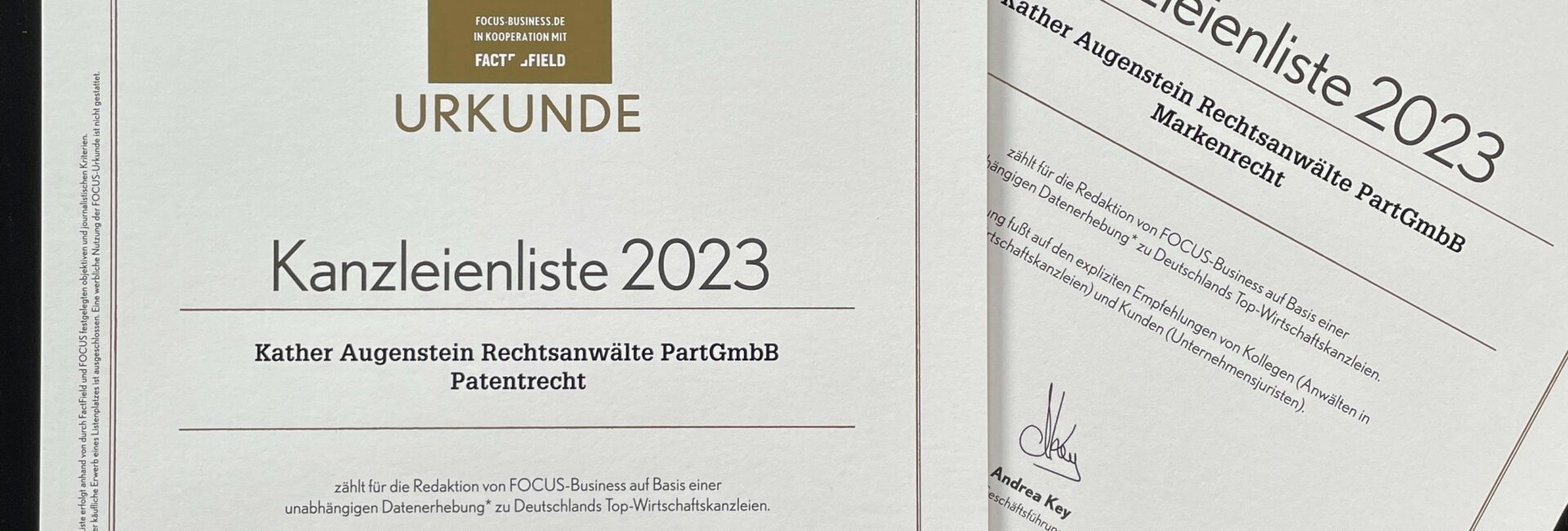
Latest News.
The Legal 500 Germany Ranking 2024 – Kather Augenstein again awarded as one of the leading law firms for patent litigation in the field of intellectual property
The highly regarded The Legal 500 Germany Ranking 2024 has again recognised the team at Kather Augenstein as one of the leading IP boutique law firms for patent litigation in the field of intellectual property.
This recognition is based on client, peer and colleague feedback and underlines our consistently outstanding performance and expertise.
Managing Partner Miriam Kiefer LL.M., who leads the expert team and coordinates national and international disputes, is again highlighted for her outstanding litigation work. Sören Dahm, an integral part of the partner core team, is recommended for his legal advice to clients in trade mark, design and competition law proceedings.
Dr Christof Augenstein and Christopher Weber are both again recommended in the exclusive circle of leading individuals for patent litigation and competition law litigation. We are proud that Senior Partner Dr Peter Kather was selected to the Hall of Fame in 2022 and is confirmed again this year in this special category.
We want to thank our clients, peers and colleagues for the trust they have placed in us!
For more details of the full ranking results, please click here.

Latest News.
Higher Regional Court Dusseldorf (Glatiramer acetate) – fault in the enforcement of a preliminary injunction from a subsequently revoked patent
In its judgment of 12 October 2023, the Higher Regional Court Düsseldorf dealt with the question of whether the patent proprietor enforcing a preliminary injunction is at fault if the patent is later revoked.
1. Facts
The proceedings before the Higher Regional Court of Düsseldorf concerned a generics company’s claim for damages under Sec. 945 German Code of Civil Procedure, which was kept off the market by an injunction.
Initially, the Defendant’s patent was upheld by the Opposition Division at first instance. The Plaintiff filed an appeal against this decision. The Defendant then obtained a preliminary injunction against the Plaintiff, which it enforced.
Following the revocation of the patent in suit, the Plaintiff filed an action to the Regional Court Düsseldorf. In its judgment of 29 September 2022 (docket no. 4c O 48/21), the Regional Court Düsseldorf ruled that the Plaintiff was entitled to damages under Sec. 945 of the German Code of Civil Procedure.
2. Judgement of the Higher Regional Court Düsseldorf
On appeal, the Higher Regional Court Düsseldorf dealt with the question of whether the defendant was at fault because it had obtained and enforced a preliminary injunction based on a patent that was later revoked.
It is true that the claim under Sec. 945 German Code of Civil Procedure is independent of fault and is structured as risk liability. However, the Higher Regional Court thus countered any concerns with regard to the conformity of the rigid risk liability of Sec. 945 German Code of Civil Procedure with the Enforcement Directive.
In the opinion of the Higher Regional Court, the Defendant had acted negligently because it could have recognized that a revocation of the patent in suit was possible and foreseeable if it had exercised the due care required. The patent proprietor may only rely on the validity of a first-instance decision on the validity of the patent if a subsequent amendment of the decision was not foreseeable. This applies in particular if the case law has changed unexpectedly.
Anyone who obtains and enforces a preliminary injunction during an ongoing legal attack, even if this was unsuccessful in the first instance, is deliberately acting at their own risk that this may later prove to be unjustified from the outset.
3. Conclusion
It is difficult to prove culpability in the case of unwarranted IP warnings. In addition, the requirements for culpability in these cases are high. In principle, the grant of the patent may be relied upon if the patent proprietor does not have a knowledge advantage over the granting authority or is not subject to special duties of care.
However, the Higher Regional Court Düsseldorf has now lowered the hurdles for a patent proprietor to be at fault if it acts from its patent without authorization. The patent proprietor can proceed from a patent that was upheld at first instance. However, it may not rely on the validity of this decision but must rather expect the possibility of revocation.

Latest News.
UPC on access to written pleadings and evidence
The Central Division Munich has rejected two separate requests based on Rule 262.1 (b) RoP requesting access to the content of the court file of two revocation actions. The Court found that a “reasoned request” requires a concrete and verifiable legitimate reason that can be weighed against the party’s interest to deny access.
The Nordic-Baltic Regional Division found contrary to this, that “reasoned request” shall only require the Applicant to provide a credible explanation for why he or she wants access to the pleadings or evidence.
I. Central Division Munich: Wish to form an opinion on validity is not a legitimate reason
The first order was delivered on 20th September 2023 (docket number CFI 1/2023). The Applicant asked for full access to the content of the register, including all written pleadings and evidence filed in a revocation action. The Applicant solely stated that the patent at issue and its legal validity were of interest to one of the Applicant’s clients. The parties to the main proceedings were invited to submit comments and the Claimant raised the argument that it was not possible to assess whether there was in fact a reason to grant the access as the client of the Applicant remained anonymous. Following this the Applicant solely requested the access in his own name. As the reason for the request he now argued that it was his wish to form an opinion on the validity of the patent.
The Judge-rapporteur (following “JR”) rejected the request as he found that the Applicant did not show a legitimate reason to access the register. This is interesting as Rule 262.1 RoP solely mentions a “reasoned request”, thus not explicitly stipulating a legitimate reason. However, the JR concludes that there was no intention to create a “default” right of access to written pleadings and evidence. He substantiates this finding with the wording of the Rule – making a clear distinction between decisions and orders that shall be published whereas written pleadings and evidence shall only be available upon reasoned request – following with the structure and history of the Rule. Therefore, the JR concludes that reasons have to be provided that justify departing from the default situation where third parties can solely view the register and take note of the existence of documents but not their content.
The Court therefore “concludes that Rule 262.1 (b) RoP requires a concrete and verifiable, legitimate reason for making available written pleadings and evidence upon a request by a member of the public”.
In the decided case the Applicant did not show this required reason. He had argued that he wished to form an opinion on the validity of the patent and that this was for him as a member of the public and a patent attorney of personal and professional interest. The JR found that this wish cannot be accepted as a sufficiently concrete, legitimate reason. The request therefore did not only lack concrete and verifiable information, but the Court also did not see why access to the written pleadings and evidence would be useful or necessary in order to form an opinion on the patent. The JR refers the Applicant to the study of the patent and the public prosecution history as well as prior art.
II. Central Division Munich: Wish to be informed for the purposes of education and training is not a legitimate reason
The Court decided similarly in another case. This second order was delivered on 21st September 2023 (docket number CFI 75/2023). The requesting party asked for copies of the Statement of Revocation and the Letter for Service on the Patent Proprietor in another revocation action. In this request the Applicant argued that it wanted to be informed about the proceedings before the UPC for the purpose of education and training. After having been invited to submit comments, the Claimant in the main action argued that a third party shall not be permitted to use the “carefully constructed pleadings (prepared at a not insignificant cost)” with a view to advancing its own interests.
Again the JR meticulously refers to the wording and history of the Rule and comes to the conclusion that a request for access to written pleadings and evidence pursuant to Rule 262.1 (b) RoP must pertain to the reasons for access per se. The JR finds that the reasoned request forms the basis of the decision after consulting the parties and that it has to be assessed on the basis of all facts and circumstances whether there is indeed a legitimate reason.
In this case the JR did not find a legitimate reason as the Applicant had failed to show concrete and verifiable information. Apart from this the Court did not see why the requested documents would be useful or necessary for said purpose as the Applicant could read the Courts orders and decisions. The JR found that the provided reason was also insufficiently concrete and verifiable so that the JR was not even able to weigh this reason against the (commercial) interest of the Claimant in denying access.
Lastly, the Court clarified that irrespective of the lack of a legitimate reason there is no legal basis to make available the copy of the Letter for Service as it is neither “written pleadings” nor “evidence” in accordance with Rule 262.1 (b) RoP.
III. Nordic-Baltic Regional Division: Credible explanation is sufficient
The Nordic-Baltic Regional Division also had to decide on a request according to Rule 262.1 (b) RoP. This order was delivered on 17th October 2023 (docket number CFI 11/2023). Here the Applicant requested access to documents in an infringement proceeding that was withdrawn even before all Defendants had been served with the statement of claim.
The JR acknowledged the decisions of the Central Division Munich but found that in the Nordic-Baltic Regional Divisions view the written procedure shall in principle be open to the public unless the Court decides to make it confidential. Therefore the JR concluded that “reasoned request” within the meaning of Rule 262.1(b) RoP has to be understood to mean that the Applicant needs to provide a credible explanation for why he or she wants access. This information could then be relevant when determining whether there is a need to keep information confidential.
The Applicant had explained that he was interested to see how the claim was framed, particularly since it was filed in parallel with cases in other divisions. This explanation was sufficient in the view of the Nordic-Baltic Regional Division.
IV. Leave to appeal
It should be noted that the Court in all orders stated that a clear and consistent interpretation of “reasoned request” and the consistent application of Rule 262.1 (b) RoP is especially important. Therefore, the Court has granted leave to appeal the Orders. The Nordic-Baltic Regional Division additionally only ordered access to the statement of claim for 7th November 2023. This was intended to give the Claimant sufficient time to appeal and apply for suspensive effect.
The UPC has to find and establish its jurisdiction in this first months of operation regarding many smaller and bigger questions. The application of Rule 262.1 (b) RoP might be one of those smaller questions, however, it concerns the very important issue of the access of the public to UPC Court files. It should be appreciated that the Court has perceived the different opinions on Rule 262.1 (b) RoP and did therefore grant the leave to appeal. It should be expected that a decision on this issue will be handed down by the Court of Appeal in the coming months.

Latest News.
Higher Regional Court Düsseldorf (Infusionsvorrichtung II) – No contributory negligence of the plaintiff
In its judgement of 13 July 2023 (docket no. 2 U 79/22), the Higher Regional Court Düsseldorf had to decide the question of whether a claim for damages due to patent infringement can lapse due to contributory negligence of the plaintiff.
1. Facts of the case
The plaintiff had already brought a first patent infringement case against one of the defendants based on patent in suit A. These proceedings related to the first generation of insulin pumps, which one of the defendants had been selling on the German market since 2016. In a judgement dated 13 August 2020 (docket no. 4c O 20/19), the Regional Court Düsseldorf found one of the defendants guilty of patent infringement. The defendant did not attack the judgement on appeal. The judgement therefore became final upon expiry of the appeal period.
As a result, the defendant significantly modified the first-generation insulin pumps and launched them on the German market (second generation) in October 2020. In the course of this, it also changed its distribution structure.
Against this second generation of insulin pumps, the plaintiff filed another action before the Regional Court Düsseldorf based on patent in suit B. This action was directed against the defendant from the first lawsuit, among others. In its judgement of 26 April 2022 (docket no. 4c O 26/21), the Regional Court of Düsseldorf found the defendants guilty of patent infringement because the second-generation insulin pumps make use of patent in suit B.
The defendants have appealed against this. The defendants argue, among other things, that the plaintiff is contributorily negligent and that the claim for damages has therefore lapsed completely. The plaintiff could have already asserted the patent in suit B against the first-generation insulin pumps. The plaintiff would then have been spared a modification (second-generation insulin pump) infringing patent in suit B and an infringing act as a result.
2. Decision of the Higher Regional Court Düsseldorf
The Higher Regional Court Düsseldorf dismissed the defendant’s appeal.
The plaintiff was not guilty of contributory negligence. It is not an obligation of a patentee to prevent the infringer from further infringing acts against other patents of the patentee. This applies in any case if the patent proprietor has not established a special case of trust, for example through pre-litigation correspondence or similar. In the absence of such a special case of reliance, it is the sole responsibility of the infringer to ensure that his actions do not infringe the property rights of others. It is therefore the infringer’s duty to research the relevant third-party property rights.
In addition, the Higher Regional Court Düsseldorf stated that even in the case where such an assumption of reliance can be made, the fault of the patent infringer cannot be completely ruled out. After all, it is primarily the competitor’s responsibility to ascertain the existence of third-party property rights.
3. Practical note
This judgement by the Higher Regional Court Düsseldorf impressively demonstrates that when advising on design around solutions, it is not enough to focus solely on the property right in dispute. In any case, special attention should be paid to the other family members of the patent in suit.
Ideally, the infringer should carry out a comprehensive examination of all possible IP rights (FTO) in relation to the design around solution. Otherwise, it is possible that the design around solution may even make use of another competitor’s patents, which could lead to a further cost-intensive dispute with another competitor.

Latest News.
Juve Patent Ranking Germany 2023: Kather Augenstein again among the top IP law firms and leading IP specialists in Germany
We are very pleased that Kather Augenstein was again able to defend its ranking of previous years in the current edition of the highly regarded JUVE Patent Ranking Germany 2023.
As the year before, Kather Augenstein achieved the second-highest rating of four stars in the category Patent Litigation – Lawyers.
In addition to the strength for litigation within a broad range of industries, JUVE Patent again underlines in this year’s rating the European set-up of our boutique firm in representing our clients before the Unified Patent Court. You can read the full analysis here.
Furthermore, we are very pleased that no less than three of our partners are represented among the leading individuals in the field of patent litigation – lawyers this year: besides our senior partner Dr Peter Kather, Dr Christof Augenstein has also been highlighted as a leading individual this year. Christopher Weber is listed among Germany’s leading litigators in patent law for the third time in a row.
A special thanks goes to our clients and colleagues, who gave high praise to no less than four of our partners and IP specialists. Dr Peter Kather, is described as “highly client-oriented with perfect advice on strategy and proceedings”, while Christof Augenstein is rated by a client as “creative, pragmatic and responsive”, “an in-house lawyer’s dream to work with”. Miriam Kiefer and Christopher Weber receive same high praise, both are also underlined for their “very good technical understanding”.
“The excellent rating of our firm is never the result of a single person, but of our entire team. A big thank you therefore goes to the outstanding team at Kather Augenstein, which made this success possible,” says our Managing Partner Miriam Kiefer.

Latest News.
FCJ, Judgment of 20 June 2023 – X ZR 61/21 – Faserstoffbahn
When are the limits of the right of prior use exceeded if a modification is used? The 10th Civil Senate dealt with this question in its decision Faserstoffbahn.
I. Facts
The subject matter of the infringement proceedings was Defendant’s panty liner. Regional Court of Düsseldorf essentially condemned Defendant as requested. On appeal to Higher Regional Court Düsseldorf, Plaintiff limited the action to a further embodiment, which featured superabsorbent polymers (SAP) for the first time, asserting a combination of main and sub-claims.
Higher Regional Court Düsseldorf denied a right of prior use and dismissed Defendant’s appeal. In its judgement, it stated that it was undisputed that the pre-used panty liner did not have any SAP. However, the prior user was limited to the use of the possession of invention which he had used before the priority date. Consequently, there was already no protected possession of invention – the question of the scope of a right of prior use in the case of modifications therefore did not arise.
In response to Defendant’s appeal, FCJ set aside the judgment and referred the case back to Higher Regional Court Düsseldorf for a new decision and hearing on the merits.
II. Reasons
The prior user is limited to the use of the possession of invention for which all requirements of the exception were fulfilled before the priority date. The prior user is precluded from further developments beyond this possession of invention if they interfere with the subject-matter of the protected invention. Whether a different form of use exists has to be assessed on the basis of the claims interpreted in the light of the description and drawings.
In particular, the prior user exceeds the limit of its right of prior use if an additional advantage is obtained for the first time with the modification. The situation is different, however, if the patent or utility model discloses a deviation from the prior use which the person skilled in the art would have taken into account without further ado at the time of priority.
However, Court of Appeal did not carry out this examination, but erred in law in assuming that the question of scope due to a modification did not arise in principle.
The modification of a pre-used object, which realises all features of an independent claim of the utility model in suit, could also be covered by a right of prior use if the pre-used object did not realise the further features before which are now mandatory according to the motion. This applies irrespective of whether only the infringement action was based on a version of an independent claim limited in the manner mentioned or whether the utility model had been limited accordingly in cancellation proceedings.
III. Conclusion
If a modification realises additional features of a subclaim for the first time, the limits of the right of prior use are not exceeded per se. In individual cases, this may indicate that an additional advantage is achieved which is no longer covered by the right of prior use. However, this must be examined on the basis of the granted patent or registered utility model.

Latest News.
Aluminiumdielen – Higher Regional Court Karlsruhe decision 18.07.2023 – 6 W 30/23
In its decision of 18 July 2023, the Higher Regional Court Karlsruhe dealt both with enforcement under Section 888 of the German Code of Civil Procedure (ZPO) and with the question of whether an infringing object is still within the channels of distribution if it is located with a trader who is not a dealer.
The case
The present case was an appeal against a decision of the Regional Court Mannheim (order of 19 May 2023, docket 2 O 86/21 ZV II). In this decision, the Regional Court Mannheim ruled that the debtors had to recall or definitively remove from distribution channels („zurückzurufen oder endgültig aus den Vertriebswegen zu entfernen“) the outdoor aluminium floorboards („Outdoor-Aluminiumdielen“) in question. The debtors defended themselves against this with the argument that there were no more products in the distribution channels and that a recall was therefore impossible. They justify this with the fact that all products placed on the market have already been installed and have thus become the property of the end users.
The decision
In the order, the Regional Court of Karlsruhe, in addition to the admissibility of the application, first states that an order to recall or remove is to be enforced according to Section 888 ZPO. The Chamber justifies this by stating that the wording of the judgment “or” allows the debtors to choose between the two options. Since at least the recall is a non-justifiable act within the meaning of Section 888 ZPO, enforcement – irrespective of the justifiability of the further option – is to be enforced according to Section 888 ZPO. According to the Chamber, it is irrelevant whether the optionally ordered Removal from distribution channels also constitutes a non-justifiable act or is to be enforced as a non-justifiable act from Section 887ZPO.
With regard to the substantive issues of the decision, Section 140a (3) sentence 1 German Patent Act must be observed in the present case. Pursuant to Section 140a (3) sentence 1 German Patent Act, infringers whose inventions are used contrary to Sections 9 to 13 German Patent Act may demand that the infringing party recalls the products or permanently removes them from distribution channels.
With regard to the question of when an infringing object is still in the distribution channels, the Higher Regional Court Karlsruhe focuses on the concept of the private end consumer in the present decision. The Chamber clarifies that an infringing object is still in the channels of distribution („in den Vertriebswegen“) even if the customer is a trader who is not a dealer. The Higher Regional Court of Karlsruhe justifies this decision by stating that it is conceivable that an object is later sold in the course of a commercial act and that a patent-infringing act is thereby carried out. In the present case, the Chamber argues that the property in which the outdoor aluminium floor („Outdoor-Aluminiumdielen“) was installed could later be sold by the trader as a commercial act. Due to these circumstances, the court concludes that a resale of the floorboards is not sufficiently excluded. The debtors’ objection that the products had already been installed at the buyers’ premises did not justify a different decision in the court’s view either. The court justified this by stating that the recall pursuant to Section 140a (3) sentence 1 German Patent Act is merely a demand on the debtor to return the delivered products to the buyer; it has no effect on the debtor whether the buyers actually comply with the demand or not. The debtor has fulfilled his legal obligation if he has issued the demand. The recall is not precluded by the fact that a removal with a single distribution of the floorboards is very unlikely.
In its earlier case law, the Regional Court Mannheim had taken a different view. In its decision of 10 December 2013, docket 2 O 180/12, it stated that the end buyers/end users are not part of the distribution channel. It should be the same whether they use the object commercially or not. Objects that are with private or commercial buyers are no longer within the distribution channels if the buyers are to be classified as end users („Endabnehmer“).
The Higher Regional Court Karlsruhe based its decision, inter alia, on earlier decisions of the Higher Regional Court Düsseldorf. The decisions of the Higher Regional Court Düsseldorf also come to the conclusion that objects are in principle still in the distribution channel if they are with a commercial buyer. Here, too, the court states that it makes no difference whether the commercial buyer is to be classified as an end user or not.
In its decision of 15 July 2021 – 15 U 42/20, the Higher Regional Court Düsseldorf justified its decision by stating that a commercial end user generally infringes a patent if he commercially uses the infringing product. In this case, he owns the infringing product for the purpose of use pursuant to Sec. 9 Sentence 2 No. 1 German Patent Act.
In its decision of 13 August 2020 – 2 U 10/19, the Higher Regional Court Düsseldorf also came to the conclusion that a product is still”in the distribution channels („in den Vertriebswegen“) even if it is held by a commercial end user. In the case at hand, the parties were arguing about spark plugs in a gas engine and here, too, the court argued that it is not unlikely that the engine equipped with the spark plugs will be sold second-hand and that the patent-infringing spark plugs will thus also be used commercially. In addition, the Higher Regional Court Düsseldorf stated that a product is only not in the channels of distribution („in den Vertriebswegen“) if it can be ruled out that it will be further distributed at a later point in time.
The Higher Regional Court Karlsruhe takes up the aforementioned arguments of the Higher Regional Court Düsseldorf and applies them to its own case.
With the present ruling, the Higher Regional Court Karlsruhe thus follows the existing case law of the Düsseldorf Higher Regional Court.

Latest News.
The Pharmaceutical Intellectual Property and Competition Law Review – Update: Christopher Weber und Dr. Benjamin Pesch publish on recent developments in intellectual property and competition law in the pharmaceutical sector in Germany
This latest 4. edition of The Pharmaceutical Intellectual Property and Competition Law Review, our partner Christopher Weber and our counsel Dr Benjamin Pesch have published another chapter on current developments in the German market, based on their expertise in the pharmaceutical sector.
In Chapter 5, they provide an update on the general principles and recent developments in intellectual property and competition law in the pharmaceutical sector in Germany. A detailed insight into the German chapter can be found here.
Excerpts of the publication are also published as part of our partnership on Lexology. If you are interested in a bound copy of the book, please contact our two authors:
weber@katheraugenstein
pesch@katheraugenstein
The Pharmaceutical Intellectual Property and Competition Law Review is an annual hardcover and online guide covering legal and market developments in key jurisdictions in the pharmaceutical sector worldwide. As an “annual review”, the publication provides a detailed analysis of recent developments in legislation and its interpretation by national authorities around the world and aims to give users an insight into future trends.
About the Law Reviews:
The Law Reviews is a network of experts covering over 108 areas of law in more than 130 countries worldwide, aimed at practitioners looking beyond their own borders for strategic solutions in foreign jurisdictions.
Progressive thinkers from the world’s leading law firms analyse global legal issues and their business implications. The Law Reviews is an essential resource for lawyers, in-house counsel, governments and corporate executives.
The editors of The Law Reviews are recognised international industry experts in key practice areas.

Latest News.
Managing IP Stars honours Dr Benjamin Pesch again as “Rising Star 2023” in its latest edition
Managing IP recently released its Rising Star Rankings Germany 2023. We are delighted that Dr Benjamin Pesch, Counsel, has been awarded as Rising Star 2023 for his third time.
We specially like to thank our peers and our clients who contributed to this ranking with their reviews. The feedback received from colleagues, peers and clients represents the cornerstone for the Rising Star distinction. This is a confirmation of Dr Benjamin Pesch’s strong professional commitment with which he meets the constantly evolving needs of his clients to a high degree.
About IP Stars:
Managing IP launched its official Rising Stars publication in 2018 (read more here). This special publication, which is produced by the IP STARS research team, recognises some of the best up-and-coming intellectual property practitioners in private practice who have contributed to the success of their firms and clients. Although selection is primarily based on an individual’s contributions and expertise, we can also take account of their activities in the IP community.

Latest News.
2023 – FOCUS Legal Special – Kather Augenstein again among the TOP Business Law Firms for Patent and Trademark Law 2023 in Germany
In its latest issue “FOCUS-Recht-Spezial”, FOCUS magazine has once again named the entire boutique law firm Kather Augenstein as one of the TOP business law firms 2023 in Germany in the field of patent law and trademark law in its current list of law firms 2023.
According to the editorial staff of Focus-Business, Kather Augenstein was recommended disproportionately often by clients and fellow campaigners, for which we would like to express our sincere thanks.
The complete list of recommended patent law firms can be found here.
The complete list of recommended law firms for trademark law can be found here.
